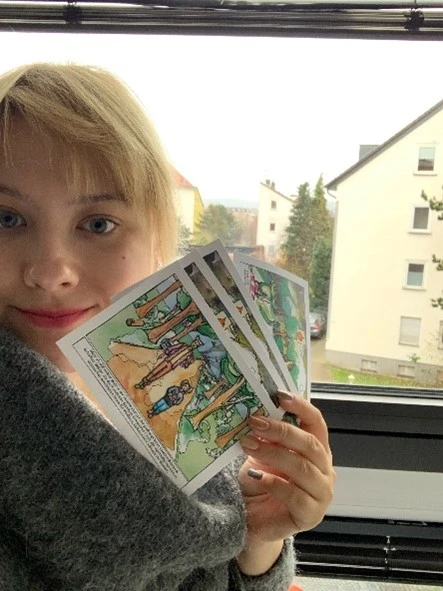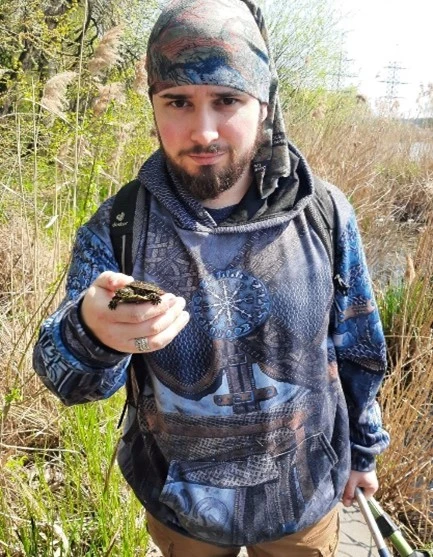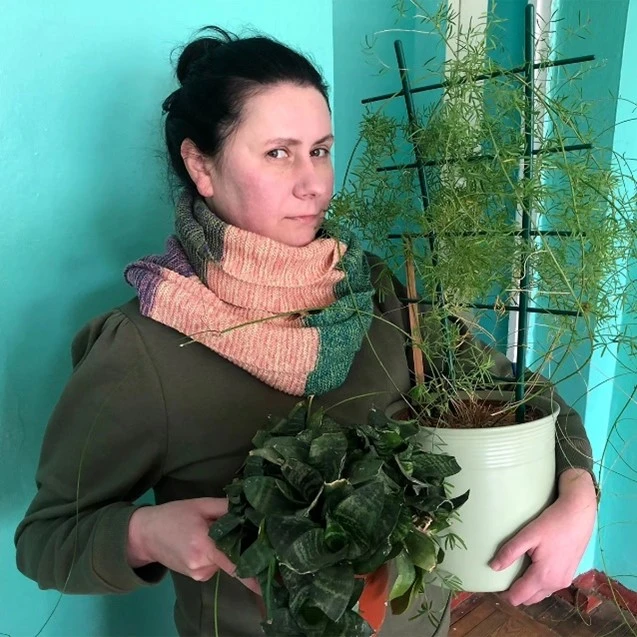Every year on 6 November, the world observes the International Day for Preventing the Exploitation of the Environment in War and Armed Conflict – a reminder that nature, too, becomes a silent casualty of war. The United Nations created this day to draw attention to the forests burned, rivers poisoned, and soils scarred by fighting, urging governments and communities alike to protect the environment even amid destruction. In Ukraine, this is not a distant theme – it is a daily reality. And in response, a new generation of civic leaders is taking on the task of safeguarding nature, each in their own way.
With EU support, the Eastern Partnership Civil Society Fellows are working at different angles of this challenge – raising awareness, saving data, and dreaming of restoration – but together they illustrate how civil society turns an international observance into real-world steps.
One of the Fellows is Nataliia Yaroshenko, a young ecologist and researcher from Sumy region. Through her Fellowship project enWAR_mental, she has launched an information campaign showing how the Russian invasion affects ecosystems – from forests burned by shelling to polluted rivers and farmlands contaminated with heavy metals.
For Nataliia, raising public awareness is the first step to recovery. “I believe that today’s young generation must understand how human actions – even those made in war – affect the environment. Their decisions tomorrow will shape the planet we all live on,” she says. Her campaign combines scientific data with creative storytelling – comics, visual art, and social media posts that speak to both the heart and the mind. In a country focused on human loss, she reminds people that the destruction of nature is also a wound that needs healing. (Read more about Nataliia and her Fellowship project here.)
While Nataliia’s work speaks to awareness, Oleksii Marushchak is focused on preservation. As a biodiversity data specialist, he leads the project Saving Biodiversity Data in Wartime, which saves more than 350,000 records about Ukraine’s flora and fauna. “When shells fall, data can disappear forever – yet this data is the memory of nature itself,” Oleksii explains. Many of these records come from scientists and citizen researchers in regions now occupied or heavily damaged.
His team works to collect, digitise, and secure these materials on international platforms so that Ukrainian biodiversity remains part of the global scientific record. It is meticulous, often invisible work – but without it, Ukraine’s post-war recovery would lack the evidence needed to restore natural areas, measure pollution, and rebuild responsibly. In his words, “We cannot rebuild what we cannot measure – preserving data is a form of environmental resistance.” (Read more about Oleksii and his Fellowship project here.)
Another Fellow, Myroslava Ganyushkina, an environmentalist and cultural manager, focuses on the moment after the fighting stops – the fragile transition from devastation to renewal. Her Fellowship project, Restoration of de-occupied territories, brings together ecologists, urbanists, artists, journalists and local communities to reimagine the future of cities like Irpin and Chernihiv. “When a place is destroyed, rebuilding its environment means rebuilding its identity,” she says.
Myroslava’s team organises community clean-ups, open-air discussions, and joint creative actions that combine environmental restoration with psychological recovery. By engaging residents in replanting trees and reclaiming public spaces, she helps people process trauma through action – turning the physical restoration of green areas into a collective act of healing and hope. (Read more about Myroslava and her Fellowship project here.)
Through awareness, preservation, and restoration, these Fellows show that environmental protection is not something to postpone until after victory. It must start now – in classrooms and communities, in data archives and public parks, in the stories we tell about what is worth saving.
6 November is more than a date. It is a reminder that war touches not only people and cities, but it also touches the land, the water, the air, the habitats that sustain life. And because of that, when we talk about peace, justice and recovery, we must include the natural world in our vision. Thanks to Fellows like Nataliia, Oleksii and Myroslava, the idea of protecting nature in war is not theoretical. It is action. It is evidence. It is hope.
Background information: Nataliia, Oleksii and Myroslava are the Fellows of the Eastern Partnership Civil Society Fellowship programme funded by the European Union. Its main objective is to support civil society activists or civically minded people from Armenia, Azerbaijan, Belarus, Georgia, Moldova and Ukraine who demonstrate a deep commitment to leading positive social change in their communities. The Eastern Partnership Civil Society Fellowship programme has been running since 2017 and today the Fellowship alumni has over 230 Fellows from across the six countries of the Eastern Partnership. Details about the Fellows and their Fellowship projects can be found here.







